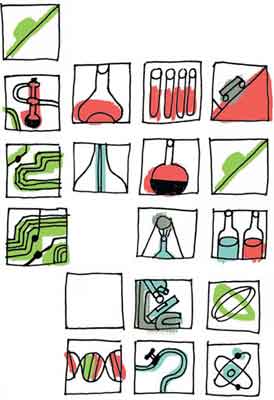 ANDRÉS SANDOVALOver the next few months Spain is likely get new legislation about science, technology and innovation, which seeks to stimulate investments by the private sector in research and development (R&D). It also creates new bases for the career of the researcher, by submitting him/her to new assessment processes, but guaranteeing labor rights that were previously unheard of in the country. The law, proposed by the government a year ago, was unanimously approved in February by the Congress’s Science and Technology Committee and is now before the Senate. The forecast is that it will come into force in mid-2011. It will substitute the Science Law that has been in force since 1986. The stimulus to change the legal milestone gained strength in 2008, when the Ministry of Science and Innovation was recreated, which brought together the Education and Health portfolios. There used to be a Ministry of Science, but it was abolished in 2004.
ANDRÉS SANDOVALOver the next few months Spain is likely get new legislation about science, technology and innovation, which seeks to stimulate investments by the private sector in research and development (R&D). It also creates new bases for the career of the researcher, by submitting him/her to new assessment processes, but guaranteeing labor rights that were previously unheard of in the country. The law, proposed by the government a year ago, was unanimously approved in February by the Congress’s Science and Technology Committee and is now before the Senate. The forecast is that it will come into force in mid-2011. It will substitute the Science Law that has been in force since 1986. The stimulus to change the legal milestone gained strength in 2008, when the Ministry of Science and Innovation was recreated, which brought together the Education and Health portfolios. There used to be a Ministry of Science, but it was abolished in 2004.
Spain is 9th in the world ranking in scientific production, but falls to twentieth place when the impact of its research is assessed. According to the Minister of Science and Innovation, biologist Cristina Garmendia, the R&D system in the country has become consolidated over the last few years, with a multiplication in the number of scientists and growth in the volume of funds, in addition to a strong integration of Spanish science within the European context. There persists, however, an estrangement between the scientific community and companies. “The law is going to change our capacity to transform knowledge into innovation, which is key for a sustainable economy,” she said.
The law incorporates innovation into the Spanish scientific system. The Spanish Research Agency should be created within a year, with the mission of monitoring resources and encouraging the private sector to invest more in R&D. Researchers will have more career flexibility for creating companies. To reinforce the connections between the public system and the private sector the law provides for the creation of a Young Innovative Company law, which will receive incentives, for example, in the field of government purchasing and provides for the creation of a State Innovation Strategy, which promotes cooperation between various instances of the administrations. However, there are still gaps to be filled and these are being discussed in the Senate. “An important problem has not been dealt with, which is that of tax incentives for stimulating private investment in innovation,” congressional representative Gabriel Elorriaga, from the Popular Party, told the Europa Press agency.
Congress has brought about changes in the scientific career structure, by linking job stability to performance assessment. The new law maintains a scheme that links scientists to civil service staff, but creates new aspects, above all for researchers who are just starting out on their careers. One of them is an initial non-renewable contract of five years, during which time the researcher will be constantly assessed. The results obtained will guide how he or she will be subsequently employed. Something else that is new is the substitution of the grant system by fixed-term labor contract. “Where before there were grants, now there will be contracts,” Cristina Garmendia pointed out. As a result, the minister said, the average age at which a researcher will achieve a fixed position will reduce from 39 to 34. Miguel Ángel de la Rosa, president of the Spanish Society of Biochemistry and Molecular Biology, remembers that the new science law comes at a time of economic adversity in Europe. “But it’s the time to do it, decisively and with a future vision,” he said. “We already have laboratories that compete with the best in the world, a strong scientific community and young leaders who are forming their own research groups. The law will allows us to advance more,” he stated.
Republish